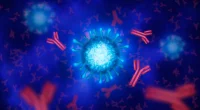Black tongue, known as black hairy tongue in medical terms, occurs when there is an overgrowth of yeast or bacteria in the mouth. Despite its alarming name, it is typically a non-cancerous condition that poses no serious health risks.
Several factors can contribute to the development of a black tongue, with poor oral hygiene being a primary cause. Failing to clean the mouth properly allows bacteria and yeast to thrive, leading to the characteristic discoloration of the tongue. Fortunately, treating black tongue is usually straightforward and involves improving oral hygiene practices.
Understanding what causes black tongue, how it can be treated, and when to seek medical advice is crucial. By maintaining good oral hygiene habits, avoiding known triggers, and making necessary dietary adjustments, individuals can often manage black tongue effectively on their own. However, consulting a healthcare provider is recommended if the condition persists or if there are concerns about underlying health issues.
Causes
The causes of black tongue, also known as black hairy tongue, include:
- Poor Oral Hygiene: Not cleaning the tongue regularly allows yeast and bacteria to accumulate, leading to discoloration.
- Smoking: Tobacco use, including smoking, is strongly associated with black tongue.
- Certain Foods and Drinks: Drinking a lot of tea or coffee, or consuming other substances that can stain the tongue, can contribute.
- Medications: Some medications, like Pepto-Bismol (bismuth subsalicylate), antibiotics like tetracycline or doxycycline, and certain antipsychotics, can cause tongue discoloration.
- Mouthwashes: Using mouthwashes containing peroxide can sometimes lead to a black tongue.
- Dehydration: Not drinking enough fluids can affect oral health and contribute to a black tongue.
- Medical Conditions: Conditions like cancer, trigeminal neuralgia, compromised immune systems, and dry mouth increase the risk.
- Genetics and Age: Older adults are more prone to black tongue, and genetics may play a role in susceptibility.
Risk Factors for Black Tongue
Black tongue is more frequently observed in older individuals but can affect people of any age. While it may appear more commonly in males than females, the primary influencers of this condition are often linked to personal habits such as smoking and oral hygiene practices.
The leading cause of black tongue is generally attributed to bad oral hygiene. However, there are numerous other contributing factors to consider. These include habits like excessive consumption of coffee or tea, tobacco use, and heavy alcohol intake. Certain medications and specific types of mouthwash can also lead to discoloration of the tongue. Additionally, conditions like intravenous medicine use, dehydration, cancer treatments like radiation therapy, immune systems, trigeminal neuralgia, and chronic dry mouth are all known to heighten the risk of developing a black tongue. Understanding these risk factors can help individuals take proactive steps to prevent or manage the condition effectively.
Medications
Particular medications are linked with a black tongue. One frequent medication that can cause this change in color is Pepto-Bismol, which can non-permanent make your tongue black. When you halt using it, your tongue will go back to looking normal.
Other medicines that can lead to black tongue include Erythromycin, penicillin, Panmycin, Prevacid, Monodox, Tarceva, Mycifradin, Zyvox, and ZyPREXA.
Symptoms
Even though the name “black tongue” suggests the tongue makes black, the color change may also be yellow, brown, and white. These color changes are usually centered on the tongue.
Some individuals with black tongues do not feel any other signs. However, when symptoms do happen, they can involve changes in food tastes, a gagging sensation, bad breath, a tickling feeling, and a sick feeling in the stomach.
If the black tongue is caused by too much Candida albicans fungus, you might feel a burning feeling on your tongue.
Diagnosis
Healthcare providers can typically determine a black tongue just by checking your mouth. They can often tell what it is from the appearance alone.
However, these spots on the tongue can sometimes be a sign of something more serious, like cancer. Tongue cancer is more likely to show up as a sore or scab that doesn’t cure. If your healthcare or doctor has any doubts, they might suggest further tests to make sure it’s not cancer.
To eliminate cancer, your healthcare provider might perform a biopsy, where they take a small sample of tissue for testing. Other possible tests include bacterial culture swabs, which check for bacteria, and fungal scrapings, which look for fungus.
Treatment
You can avoid black tongue by keeping your mouth clean and healthy. This means brushing your teeth regularly and thoroughly cleaning your tongue by brushing or scraping it. This helps remove food particles and bacteria that can stick to the surface of your tongue.
Avoiding medications or substances that cause black tongue is also important. For instance, if you’ve been utilizing Pepto-Bismol, your doctor may suggest a different medication to help with heartburn, diarrhea, or stomach upset. If the color changes are associated with something you often drink or eat, like alcohol, tea, or coffee, making dietary changes can help. Cutting out or limiting these substances might reduce the discoloration. Additionally, eating foods with a rough texture, like celery or raw carrots, can help clean the tongue’s surface.
If you consult your healthcare provider about the black tongue, they may advise you to stop utilizing mouthwashes holding peroxide and switch to a different formula. If these changes don’t help, your healthcare provider may prescribe an antifungal medication. There is some limited research on using Retin-A (tretinoin) to treat black tongue, but this treatment can have unpleasant side effects, and more research is needed to confirm its effectiveness. In rare cases, if other treatments fail, laser surgery may be required to treat the condition.
Summary
Black tongue is a harmless condition caused by excess bacteria or yeast in the mouth, often due to poor oral hygiene, certain foods, and medications. Symptoms include tongue discoloration and possible bad breath or a burning sensation. Diagnosis is usually visual, but further tests may be needed to rule out cancer.
Treatment involves maintaining good oral hygiene, avoiding triggers, and possibly using antifungal medication or other treatments. In rare cases, laser surgery may be required. Eating rough-textured foods and switching mouthwash formulas can also help.









